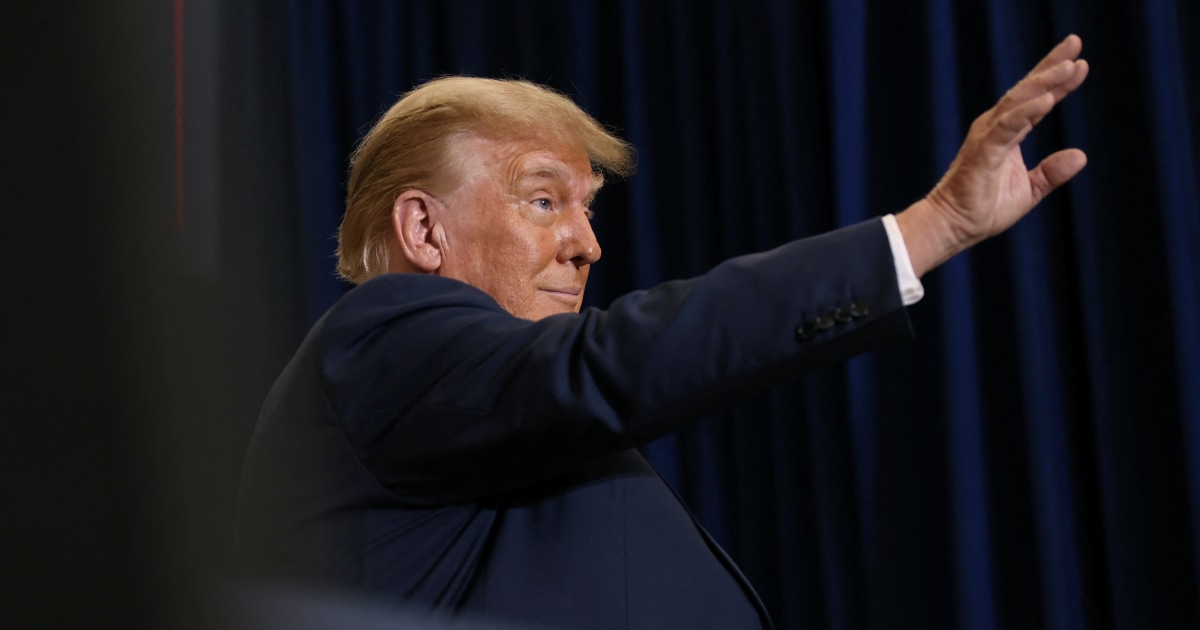
Former President Donald Trump on Tuesday filed an appeal of the decision by Maine’s top election official that he is ineligible to appear on the state’s primary ballot.
“[T]he Secretary’s Ruling was the product of a process infected by bias and pervasive lack of due process; is arbitrary, capricious, and characterized by abuse of discretion,” Trump’s attorneys wrote in their appeal to Maine Superior Court.
Maine Secretary of State Shenna Bellows, a Democrat, ruled last week that the former president is constitutionally barred from appearing on the state’s primary ballot under Section 3 of the 14th Amendment, citing his efforts to overturn the 2020 election.
Trump’s lawyers, however, said in their filing that Section 3 does not apply to the former president and that Bellows, a Democratic former state senator, has no authority to enforce it anyway. They also say she should have recused herself, arguing she is too partisan to weigh the case fairly.
Trump’s legal team asked the court to ensure that Trump remains on the ballot for Maine’s Republican primary, scheduled for March 5. Bellows has not removed Trump from the ballot yet, pausing her decision until the courts weigh in.
In her 34-page decision last month, Bellows wrote that Trump’s conduct around the Jan. 6, 2021, attack on the U.S. Capitol compelled her to rule him ineligible.
“The weight of the evidence makes clear that Mr. Trump was aware of the tinder laid by his multi-month effort to delegitimize a democratic election, and then chose to light a match,” she wrote, adding that he “used a false narrative of election fraud to inflame his supporters and direct them to the Capitol to prevent certification of the 2020 election and the peaceful transfer of power.”
In an interview with NBC News last month, Bellows said her preference would have been to wait for the U.S. Supreme Court to weigh in on the matter, which centers on the 14th Amendment, but she believed Maine law required her to act now.
“The country would be well served if the United States Supreme Court issues clear guidance on this unprecedented constitutional question for all to follow,” Bellows said.
The Superior Court has until Jan. 17 to decide whether to affirm or overturn Bellows’ decision. That ruling can then be appealed to the state’s Supreme Judicial Court or the U.S. Supreme Court.
Maine allows any registered voter to challenge a candidate’s eligibility, which three voters in the state did against Trump. The deadline for Bellows to make a decision was the end of December.
A day after her ruling, Bellows became the target of a “swatting call” — a false report of a crime or emergency with the intention of drawing law enforcement to a location.
State police said they received a call from a man who said he had broken into Bellows’ home. But upon their arrival, officers did not find anyone at her house. Bellows was not at home at the time.
State police said there’s still an active investigation into the incident, and the person who made the call has not been identified.
Bellows issued her ruling after the Colorado Supreme Court last month ruled Trump ineligible to appear on the Republican primary ballot there as well.
State Republicans have asked the Supreme Court to overturn the ruling.
Meanwhile, courts in Arizona, Michigan and Minnesota have ruled against efforts to keep Trump off the 2024 ballot in those states.